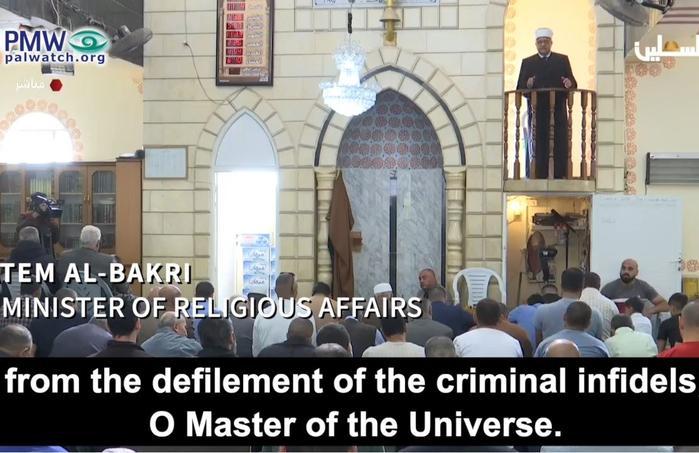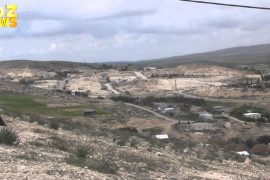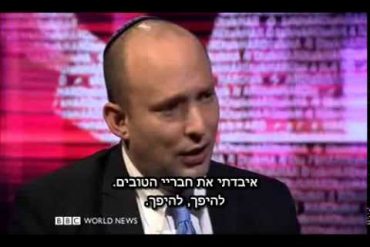An article in The Telegraph by Middle East correspondent James Rothwell (“Israel’s new government brands human rights groups ‘swarm of mosquitoes'”, Dec. 12) oddly reported on incendiary comments made by Religious Zionism leader Bezalel Smotrich about NGOs as if it just occurred, when the comments were first reported on Nov. 21.
The article – in both the headline and the text – also misleadingly characterises the comments as coming from the “new government”, when, of course, the new government hasn’t yet been sworn in. As Benjamin Netanyahu hasn’t yet finalised forming his desired coalition, Smotrich is simply an MK likely to be a minister in the next government.
Rothwell then adds the following bit of opinion within his putatively straight news story.
Israel has periodically targeted both Israeli and Palestinian rights groups. Last year it outlawed six Palestinian NGOs based in the West Bank over accusations of supporting terrorism. The move was criticised at the time by Western allies, including Britain and the EU, which said it was not backed up by credible evidence.
The claim that Israel “periodically” “targets” “rights” groups is a well-worn pro-Palestinian talking point, one with no basis in reality, as there are literally hundreds of “human rights” NGOs freely operating in the country. As far as the six Palestinian NGOs which were banned (as opposed to “targeted”), Rothwell fails to acknowledge the myriad of open-source information demonstrating their connection to the PFLP terror group.
Rothwell continues with the following assertion, which is pure speculation:
But Mr Smotrich’s comments suggest that the new government may expand that campaign by banning overseas funding for Israeli rights groups or even outlawing them entirely.
These include the NGO B’Tselem, which has accused Israel of committing “apartheid” – a charge Israel strongly denies – and Breaking The Silence, a campaign group comprised of former Israeli soldiers who now oppose the occupation.
Let’s remember that Smotrich is reported to become the new Finance Minister in the next government, which means he won’t be responsible for crafting the state’s policy towards NGOs. Further, no such threats – to ban overseas funding for, or to ban entirely, NGOs – has been made by Netanyahu.
Further, Rothwell fails to mention that B’Tselem’s irredeemably flawed report smearing Israel with the false charge of ‘apartheid’ effectively argues that a Jewish state in intrinsically a racist and “supremacist” endeavor – an idea codified as antisemitic per the IHRA Working Definition. The Telegraph reporter similarly fails to adequately describe Breaking the Silence (BtS) – a group active in promoting “war crimes” charges against Israel based on anonymous and, thus, completely unverifiable hearsay “testimonies.”
Instead, BtS is described merely as a group which has faced “accusations of being anti-Israel”.
Rothwell’s tendentious reporting continues:
It came amid a rise in violent clashes in the divided West Bank city of Hebron, where around 200,000 Palestinians live alongside a Jewish minority of 800 settlers backed by the Israeli military
A fmore accurate characterisation would note that the 800-1,000 Jews living in a small section of Hebron – site of the oldest Jewish community in the world, and the second holiest city in Judaism – are “protected” by the IDF in light of ongoing threats by Palestinian extremists. In fact, the Palestinian mayor of Hebron himself is convicted terrorist who took part in a 1980 attack in the city that killed six Israelis – including two US citizens.
The holy city has long been a hotbed of Palestinian terror and extremism.
This omission of Palestinian extremism in Hebron is extremely relevant as, later in the article, Rothwell notes that Itamar Ben-Gvir, likely to be a minister in the next government, as a “a convicted supporter of Jewish terrorism”. He then quotes a BtS spokesperson arguing that said “the rise of Mr Ben-Gvir was likely to open a new chapter of violence in cities like Hebron”.
Indeed, there has, quite understandably, been a lot of media coverage devoted to concerns over extremists within the next government. But, what possible justification can there be to ignore the ubiquitous examples of Palestinian extremism in Hebron, Ramallah and throughout the Palestinian territories.
Here’s just one recent example from the putatively ‘moderate’ Fatah party.
Here’s another one, from an advisor to the ‘moderate’ PA president:
If someone can explain to us what possible justification there is for media outlets like the Telegraph to continually ignore the literally thousands of examples of such unadulterated hate and extremism by Palestinian leaders when contextualising extremism in the region, we’re all ears.





